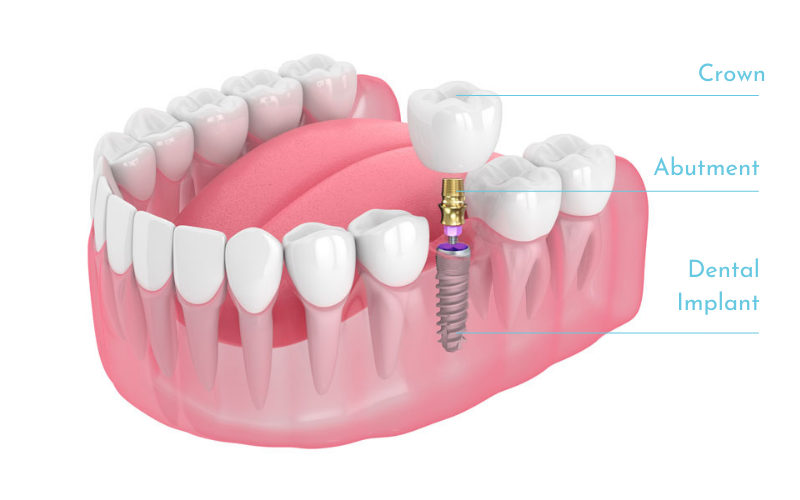
5 Key Facts About Dental Implants You Should Know
It is not unusual for the team here at Absolute Smiles to spend much of our time answering questions and addressing our patients’ concerns. We are sure this is no different from any other clinical facility where medical and surgical procedures occur. Dentist Bassendean welcomes the opportunity to answer those questions and, in particular, if one of those answers renders any concern or worry a patient may have as resolved.
It is no secret that the more a person knows about a medical condition or treatment, the more at ease they are. Not knowing everything about something often causes worry rather than the medical procedure. With that in mind, we thought it would be helpful to provide some of the core information relating to dental implants, and if it means just one person reading this has one of their concerns about dental implants put aside, then it will have been worth it.
Key Fact #1: Dental Implants – What They Are And What Are They For?
As you might expect, the first fact explains precisely what they are and why anyone would want them. Its primary purpose is replacing missing teeth after someone has lost or had one extracted. Their main construction consists of the base, usually made from a hard metal such as titanium, fused into the jawbone.
The rest of the implant will depend on whether the patient needs to replace one tooth, two teeth, or multiple teeth. In principle, these will all consist of an attachment device, usually a screw connecting to the implants previously fitted to the jawbone. The final part is the ‘tooth’, generally made from a shaped ceramic or acrylic material and coloured to match the other teeth.
Key Fact #2: Key Benefits Of Dental Implants
Dental implants have several benefits, which we have listed below.
- Replaces Missing Teeth
- Can Be Made To Look Like Natural Teeth
- Durable And Long-Lasting
- Promotes Overall Oral Health
- Can Strengthen The Jawbone
- Can Prevent Adjacent Teeth From Becoming Loose
- Are Extremely Comfortable
- Can Improve Facial Features
- Can Improve Speech
- Can Boost Self-Confidence
Key Fact #3: Dental Implants Procedure
This can vary from clinic to clinic and depends on the type of dental implants and how many need to be fitted. The treatment will be broken down into stages, with the first being a consultation regarding the patient’s suitability and the treatment’s specifics. After that, a procedure to fit the implant bases to the jaw will take place, and this is done under local or general anaesthetic, depending on the patient’s preference.
It will take up to 3 months for the implants to become fixed and secure, and then an impression is taken of the mouth so that the replacement teeth can be manufactured to suit. In the meantime, temporary teeth will be fitted. Once the permanent teeth are ready, the temporary ones will be removed and replaced by these.
Key Fact #4: Suitability For Dental Implants
Unfortunately, not everyone is suitable for dental implants, and the list below highlights those conditions and situations where this might be the case.
- Those With Compromised Immunity Systems
- Those With Certain Bone Disorders, E.G. Osteoporosis
- Those With Poorly Controlled Diabetes
- Those Who Have Cancer
- Those With Uncontrolled Gum Disease
- Those Whose Jaw Structure Is Not Strong Enough
- Those Who Smoke
- Those Who Drink To Excess
- Those Who Take Drugs
Key Fact #5: Dental Implants AfterCare
It is essential to know that there will be a reasonably long period of after-care if you have dental implants fitted. First, there will be a few days of recovery where your gums will be tender. Once this passes, good oral care is essential to prevent anything from compromising your dental implants. You will also have a series of follow-up appointments so that your dental implant practitioner can check that everything is in order and to ensure no infections or loosening has occurred.
